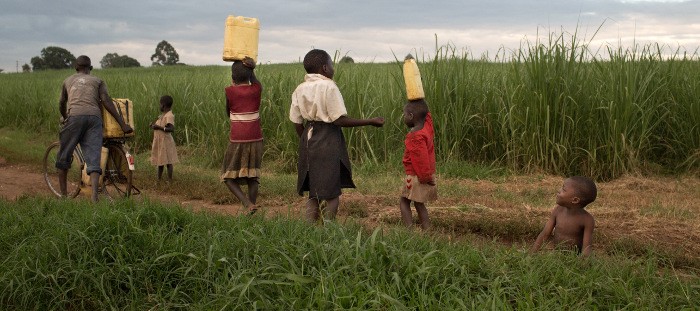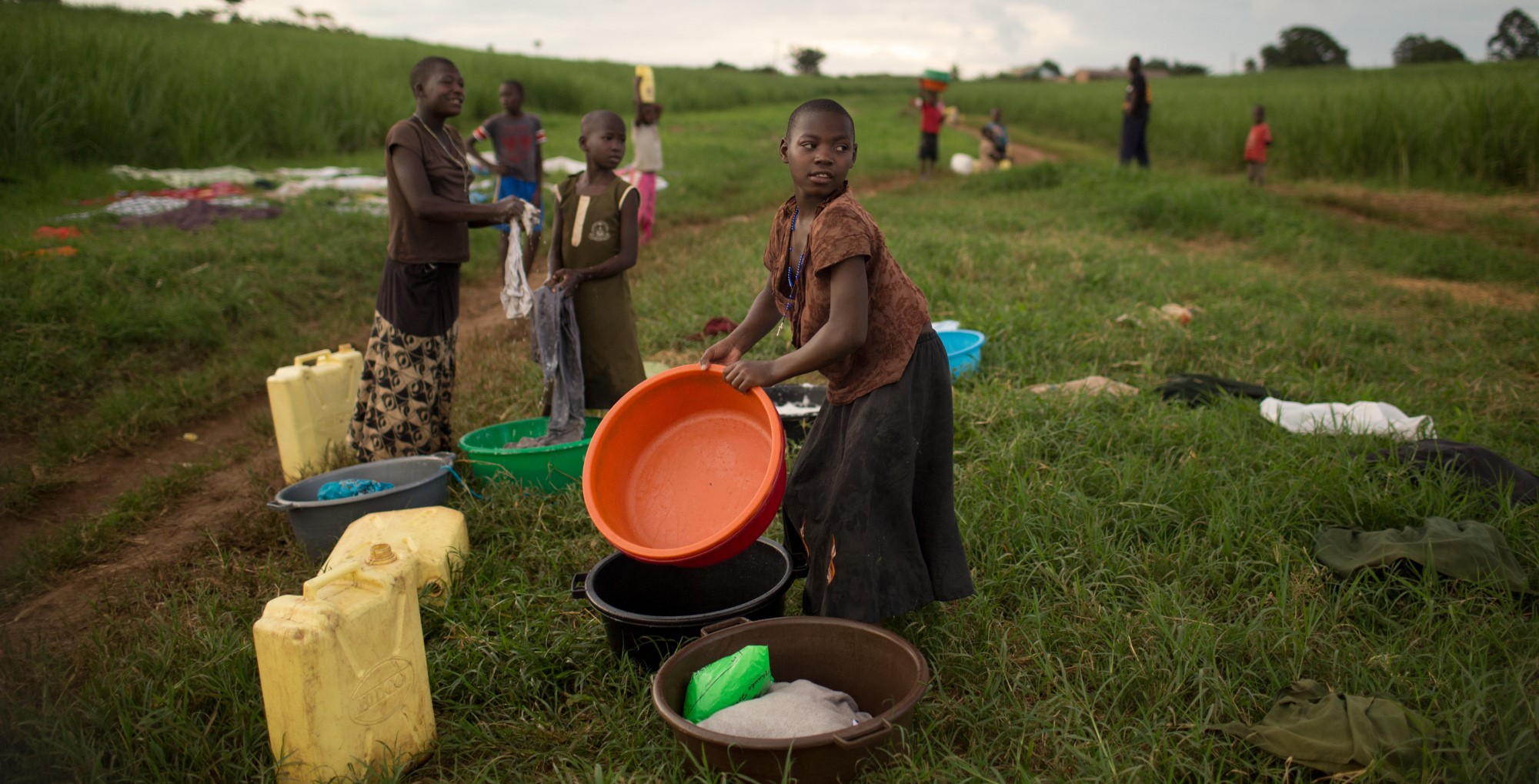Jul 24, 2018 | by Chris Prottas, The Water Trust

Around 200 million people in rural Africa depend on handpumps for access to clean water. Yet studies suggest that 30 to 50% of handpumps are non-functional. In Uganda where The Water Trust operates, a recent study found that 45% of borehole wells were completely non-functional and that 82% failed to meet basic standards of yield, quality, and reliability. Often water points go virtually unmanaged, with an estimated 30% of wells in rural Uganda benefitting from a functional management committee, and only 10% with highly-functioning financial management of funds for maintenance and repairs.
Savings groups can play a critical role in sustaining access to clean water and avoiding wasted investment in critical infrastructure. Savings groups have several advantages over the traditional volunteer management committees typically formed to maintain water points.
At The Water Trust, we have made Savings Groups formation a core element of our water and sanitation approach after seeing firsthand the value of the groups to water point sustainability and behavior change promotion.
Recently, we presented the results of our initial pilot of the Savings Groups approach to our water and sanitation peers at the WEDC International Conference. That pilot saw 18 communities increase the funds spent or reserved for water point maintenance and repair from $2 to $164 in one year. This year will mark the formation of the 100th group.
In this video, Darlson Nyangendo talks about the power of community in rural Uganda.
We piloted the approach in the districts of Masindi and Kiryandongo in western Uganda. We introduced the approach to 20 communities, of which 18 agreed to work with us. The communities received support from December 2016 through June 2018. We adapted the Village Savings and Loan Association methodology to include a reserve fund for water point maintenance and repairs and added provisions for the payment of water user dues. We then carefully sequenced group formation to follow initial triggering exercises designed to raise community awareness of shared risks and develop community-led action plans to mitigate them. These exercises include a participatory vulnerability and capacity assessment followed by community-led total sanitation activities.
The group coaching visits were opportunities to also work with natural leaders to promote hygiene and sanitation in the communities. The regular, well-attended meetings were critical to achieving significant improvements across several hygiene and sanitation measures. In contrast, a recent randomized controlled trial in Rwanda found that “community health clubs” failed to regularly meet and had little to no impact on hygiene and sanitation. In contrast to savings groups, these informal clubs lack a financial incentive to meet and depend entirely on the leadership of the unpaid local volunteer placed in charge.
Savings Groups can play a key role in addressing critical challenges in the water and sanitation sector. Furthermore, aside from the additional impact possible on health and well-being, adapting savings groups for the provision of sustainable water represents a compelling business case for group expansion.

We see an opportunity for greater cross-sectoral collaboration: 1) joint advocacy for enabling policy, 2) piloting “Savings for WASH” in different contexts, and 3) ultimately scaling up savings groups for WASH where appropriate. This fall, we plan to co-host a webinar on this subject and invite interested parties to email us at info@watertrust.org and sign up for SEEP’s newsletters to receive more information.
Chris Prottas is the Executive Director of The Water Trust, an organization dedicated to empowering rural communities in East Africa to provide their children clean water and healthy homes.
Categories: Sub-Saharan Africa Savings Groups English Savings Groups Blog Blog WebinarsBlogs

1621 North Kent Street, Ste 900,
Arlington, VA, 22209
P 202.534.1400
F 703.276.1433
Website Photos: © mari matsuri
